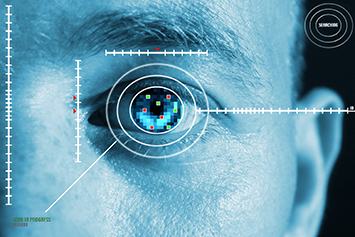The Accountability Through Electronic Verification Act is a bill that has been introduced in Congress in early 2017[i]. It has not yet gone past the introductory stage and has been referred to the Committee on the Judiciary for further assessment. It is unknown whether it will progress further or not at this point. No votes have been taken yet.
 |
|
tlnors / iStock / Getty Images |
That said, many experts are saying there’s a good likelihood that this bill will eventually become law. Let’s take a look at what the bill proposes and why it has a chance of gaining traction and what that would mean for employers.
This bill relates primarily to the E-Verify program. (Read more about what the E-Verify program is here: http://hrdailyadvisor.blr.com/2014/01/16/what-is-e-verify. Also see http://hr.blr.com/HR-news/Staffing-Training/Visas-and-Eligibility-to-Work/zn-I-9-Forms-Should-You-E-Verify-or-Not). Currently, the E-Verify program is available nationwide but is optional for most employers. It’s mandatory, however, for federal contractors as well as employers in some states who have opted to make it mandatory there. This bill, if made into law, proposes to make E-Verify mandatory for all employers, nationwide. It would do so through updating the Illegal Immigration Reform and Immigrant Responsibility Act of 1996.
Right now, the requirement of some employers to use the E-Verify system must be reauthorized by Congress every time the current authorization expires. This new bill would permanently authorize it, which would eliminate the need to continually renew the authorization.
In addition to making the use of E-Verify mandatory for all employers (rather than optional for most), the bill proposes to increase the penalties in place for employers that hire undocumented workers. It also would reduce employer liability for inappropriately firing someone whose information was simply inaccurate in E-Verify.
It proposes that once enacted, within 1 year, all new employees would need to be verified using E-Verify, and all existing employees who had not been through the E-Verify system would need to be checked within 3 years. Any employee who does not pass (i.e., is not authorized to work in the U.S.) would need to be terminated.
Naturally, since this is only the first iteration of this bill; it’s possible that some of these components could change as it goes through the process of possibly becoming a law.
Why Might This Bill Become Law?
The primary reason that many believe this bill is likely to pass is because it is in alignment with the proposed 2018 budget put forth by President Donald Trump, which earmarks $15 million out of the Department of Homeland Security budget for this implementation.
The proposed budget also includes an increase in spending for additional immigration enforcement, which would be in alignment with this bill.
What Will This Mean for Employers if the Bill Passes?
Employers are already required to verify that new employees are authorized to work in the United States. This is done today through the process involved with completing the I-9 form (and its requirements to check identity documents the new employee presents). For those employers using E-Verify, the process is currently utilized in addition to the I-9 process. Right now, that means that any employer utilizing E-Verify must still complete an I-9, but it also gets the additional information that E-Verify requires: a Social Security number and a copy of the employee’s photo ID that was presented. They may also need to do a photo match when certain documents are presented. They must also put up posters explaining that they use E-Verify. In general, the E-Verify process requires a bit of extra labor for employers since it has an additional step.
The Accountability Through Electronic Verification Act as it now stands proposes to eliminate the need to complete the I-9 form. This would require an additional legal change, but this would mean less duplication of efforts for employers. The bill also proposes to allow employers to initiate the E-Verify process before the applicant has actually been hired, if the individual consents to it. It would nonetheless be a bit more work than just the I-9 form, but some of the duplication of efforts would likely be removed.
With the increased penalties, employers are concerned about what safe harbor rules will be in place to protect employers who have taken all good-faith efforts to ensure they are only employing individuals who are authorized to work (yet may still end up inadvertently having someone on staff who is not eligible to work). The bill states there will be a good-faith penalty reduction, but there are not yet specifics on what that might look like.
This is just an overview; for more details see: https://www.congress.gov/bill/115th-congress/senate-bill/179.
[i] https://www.congress.gov/bill/115th-congress/senate-bill/179
